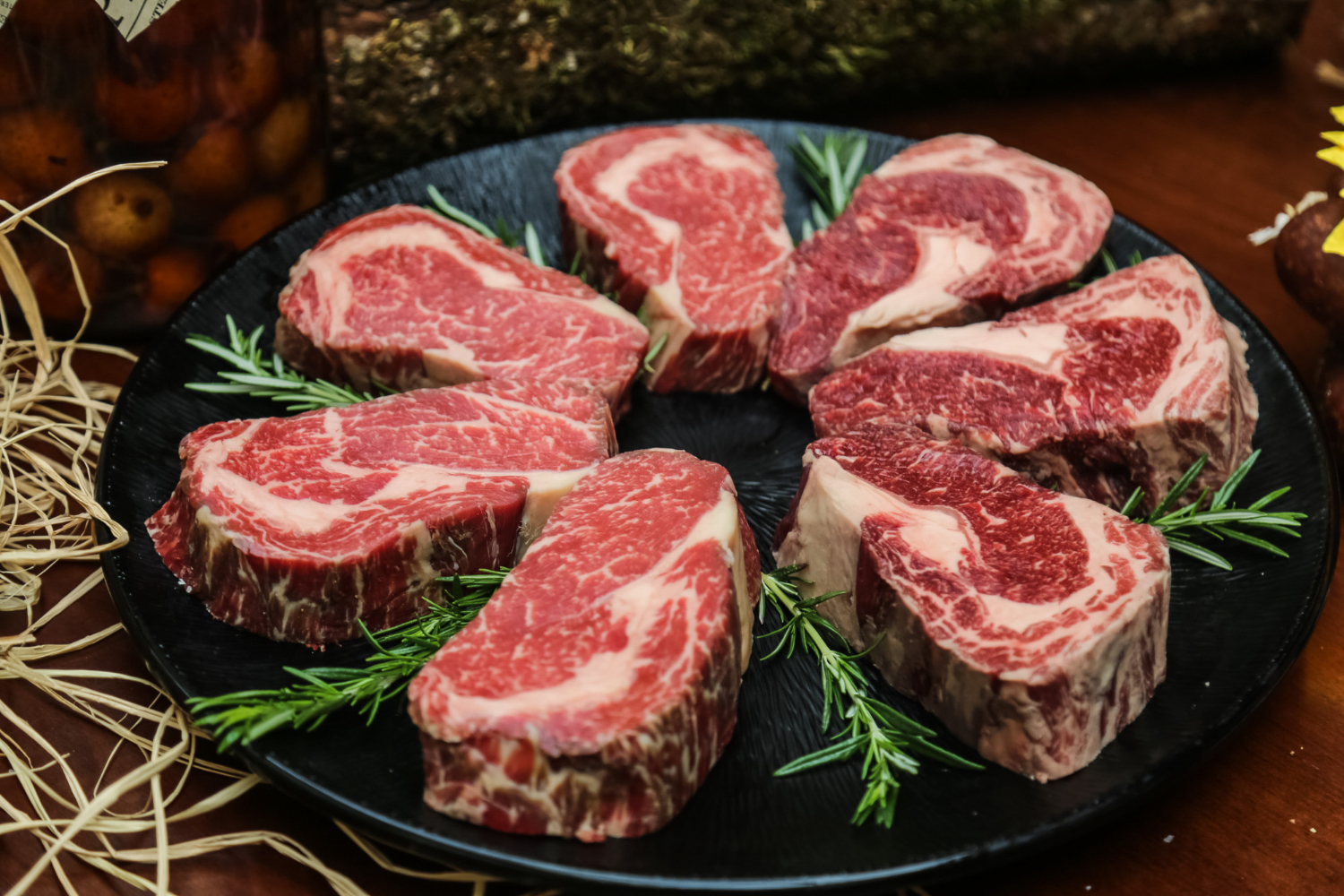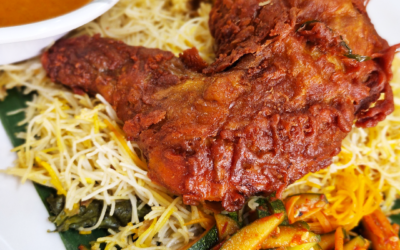When I first saw the CNA headline — “Health experts double down on minimal meat eating call” — on my Facebook feed, I had to do a double take. A diet with just a sliver of meat? It sounded absurd.
But after digging in, I realised this isn’t some trendy clickbait. It’s the EAT-Lancet Commission, a global panel of 37 scientists from 16 countries, revisiting their “planetary health diet” first published in 2019. Their aim is bold: design an eating pattern that keeps people healthier while also protecting the planet.
At first, it sounded extreme. But when I looked at the numbers, it wasn’t quite as radical as my gut reaction made it seem. In fact, the macronutrient breakdown is very workable for an average healthy person. And strangely, it reminded me of Prophet Muhammad’s ﷺ diet — simple, modest, and with meat in moderation.
What the Diet Looks Like
Here’s the proposed daily breakdown:
-
Beef, lamb, pork (for non-Muslims’ of course): ~15 g/day (barely a mouthful)
-
Poultry + fish/seafood: ~30 g/day
-
Dairy: ~250 g/day
-
Vegetables: ~200 g/day
-
Fruits: ~300 g/day
-
Grains: ~210 g/day
Quick approximate macros:
-
Energy: ~2,360 kcal/day
-
Carbohydrates: ~304 g (~51.5%)
-
Protein: ~86 g (~14.6%)
-
Fat: ~89 g (~33.9%)
As the Commission points out, “unhealthy diets are now the leading cause of death worldwide, driving obesity, diabetes and cardiovascular disease.” By shifting to this plant-forward model, they estimate millions of premature deaths could be prevented each year.

They also argue the benefits go beyond our bodies. “Food systems are the single largest driver of climate change, biodiversity loss, freshwater use and pollution,” they wrote — and reducing meat, particularly red and processed meat, could ease that burden.
Echoes of the Prophetic Diet
Reading all this, I couldn’t help but think of the Prophet ﷺ:
-
Meat was not daily fare. It was enjoyed, but sparingly.
-
Staples were simple. Barley bread, dates, milk, fruits, vegetables.
-
Moderation was key. As he taught, “A few morsels to keep the back straight…” and never filling the stomach to excess.
-
Whole, natural foods. No ultra-processed snacks, just basic nourishment.
It struck me that science, after decades of chasing fads and “superfoods,” is circling back to something timeless: a balanced, modest diet that doesn’t glorify excess.
And What About Modern Diets?
Of course, today’s world is obsessed with dietary camps. Keto, carnivore, paleo, intermittent fasting — each has its fan base, and some genuinely help people. For example, keto can stabilise insulin, while carnivore simplifies food choices for those with sensitivities.
But I often feel that they short-term tools. I have, in my circle friends who have tried the above diets, but noone could sustain it. The Prophet’s eating habits — and this modern minimal meat diet — feel more like sustainable lifestyles. They don’t demonise entire food groups. They lean on moderation, balance, and flexibility rather than extremes.
Final Thoughts
I started off dismissing this “15 grams of red meat a day” diet as ridiculous. But the more I read, the more it resonated. Not only does the science make sense — preventing chronic disease, improving longevity — but it also addresses something bigger: our responsibility to the Earth.
The CNA article quoted the Commission directly: “Food systems are the single largest driver of climate change, biodiversity loss, freshwater use and pollution.” By eating less meat and leaning into plant-based foods, we reduce strain on the environment — and that’s not just a health choice, it’s an ethical one.
From an Islamic lens, this hits home. The Qur’an describes humanity as khulafa’ — stewards of the Earth. The Prophet ﷺ taught against wastefulness, even warning not to waste water while standing at a flowing river. Caring for our planet isn’t just activism; it’s worship through responsibility.
So when experts call for minimal meat eating, I now see it less as a restriction and more as an invitation: to live healthier, tread lighter, and honour both our bodies and the Earth.
It feels less like a “new” diet and more like a rediscovery of timeless wisdom — the way the Prophet ﷺ ate: simple, moderate, and mindful of creation.
Have an Opinion? We would love to hear from you!
Drop us a message to feed back on this article, or to suggest any other topics for us to bring up.
Wanna have your business featured on our blog? Contact KOPIŌ to learn how we can enhance your online presence.
Explore More Stories
How to get Halal Certified with a Halal Consultant
When people think about Halal food, they often stop at "no pork, no lard." But as Ms Fatin Hamid, a seasoned Halal consultant, and manager of HCS Consultants, explains in our first ever Kopitiam Konversation, Halal certification is far more comprehensive — and crucial...
Singapore Muslims React to Masagos Zulkifli’s Response over Ex-NMP’s Gaza Comments
A composite image of Minister for Social and Family Development Masagos Zulkifli, former NMP Calvin Cheng and Home Affairs and Law Minister K Shanmugam. (Photos: Facebook, CNA)The recent social media post by former Nominated Member of Parliament Calvin Cheng relating...
Friday Must-Try: Saffrons’s Beehoon Briyani
If you’re a food lover who lives for bold flavors and unique culinary experiences, mark your Fridays for something truly special—Saffrons’s exclusive Beehoon Briyani.This one-of-a-kind dish fuses the rich, aromatic spices of traditional briyani with the soft, delicate...





